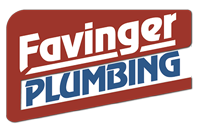BEFORE COLD WEATHER
- Insulate water pipes in unheated spaces.
- Disconnect hoses from outside faucets.
- Cover hose bibs if not freeze-proof.
- Close or cover crawl space vents.
- Locate your main water shut-off valve in case of a sudden burst pipe.
DURING FREEZING TEMPERATURES
- HEAT YOUR HOME!
- Keep garage doors closed.
- Open sink and vanity cabinet doors to expose plumbing to warm air.
- Leave a slow trickle of water (both hot & cold) at remote faucets.
IF PIPES FREEZE
- Take the same measures listed above.
- Open faucets while attempting to thaw.
- Try using a blow dryer or heat gun on exposed piping; do NOT use a torch.
- If a pipe bursts, shut your water off.
- Call Favinger Plumbing.
GARBAGE DISPOSAL ODOR
Grind up lemon juice and ice cubes in your disposal if you have an odor. The ice cubes help clean the walls and blades and the lemon juice leaves everything smelling fresh!
HELP EXTEND THE LIFE OF YOUR WATER HEATER WITH A MINI-FLUSH
Removing sediments from the bottom of your tank is important for the prevention of rust and corrosion, and improving efficiency. Although a complete water heater tank draining and flush is the best route for this, it can be time consuming and also requires that your water heater be shut down. This mini-flush works well, takes a fraction of the time, and allows you to do it while the water heater is still running:
- Place a bucket under the drain valve found near the bottom of the tank.
- Find the drain valve (Some drain valves have a handle, others have a short stem with a slot for a flat blade screwdriver).
- Turn the valve counter-clockwise to release a few gallons of water into the bucket.
- Close the valve by turning it clockwise and drain the bucket.
THANKSGIVING DAY & THE GARBAGE DISPOSAL
Making mashed potatoes? DO NOT put all those potato peelings down your disposal – at least not all at once! Composting is the best way to get rid of them, but if you must put them down the garbage disposal, here is the way to do it:
First, turn on your cold water flow and start the garbage disposal. Next, gradually push small amounts of your potato peelings (or your other T-Day foods) in. Be sure your cold water is running all this time and make sure it’s running clear before pushing anything more in. Let both the water and garbage disposal run for a few moments after all the peelings have been ground up. Turn the disposal off before turning off the water.
A HAPPY TOILET TANK
Never put any toilet cleaners or deodorizers in the TANK of your toilet. It will damage and corrode the interior tank parts such as the flapper. Only use cleaners in the bowl… because, unfortunately, the bowl DOES need to be cleaned!
WHAT TO DO WITH COFFEE GROUNDS?
No, it is not okay to put coffee grounds in the garbage disposal. The grounds are so fine they actually get “stuck” to the “gunk” that naturally clings to the sides of drain pipes over time. Best to compost them or use them in your garden.
EXCESSIVE WATER PRESSURE
Excessive water pressure can make toilets run, faucets drip, and water heaters make funny noises. Really high pressure can cause the pressure relief valve on your water heater to discharge, and can even burst washing machine hoses. Your water pressure should sit around 60 pounds per square inch (psi) and never more than 80 psi. Anything higher than 80 psi must have a pressure regulator. Some water mains deliver water in excess of 150 psi.
You can check your own water pressure with a water pressure test gauge that you can connect to the outside hose bib. Make sure the test gauge has hose threads so it will fit! These gauges are available at local hardware stores. Also, our plumbers can test your water pressure when they are at your home doing plumbing work… just ask!
KITCHEN SINK STOPPAGES
The most used drain in the house is the one in your kitchen sink. Sink stoppages are usually caused by liquid fats emulsified by warm water being carried through the pipes. The water cools as it goes to the main sewer and leaves fatty deposits along the way. Bits of food add to the accumulation until the pipe is blocked. To avoid stoppages, pour excess grease into a tin can and throw it out with the garbage.

